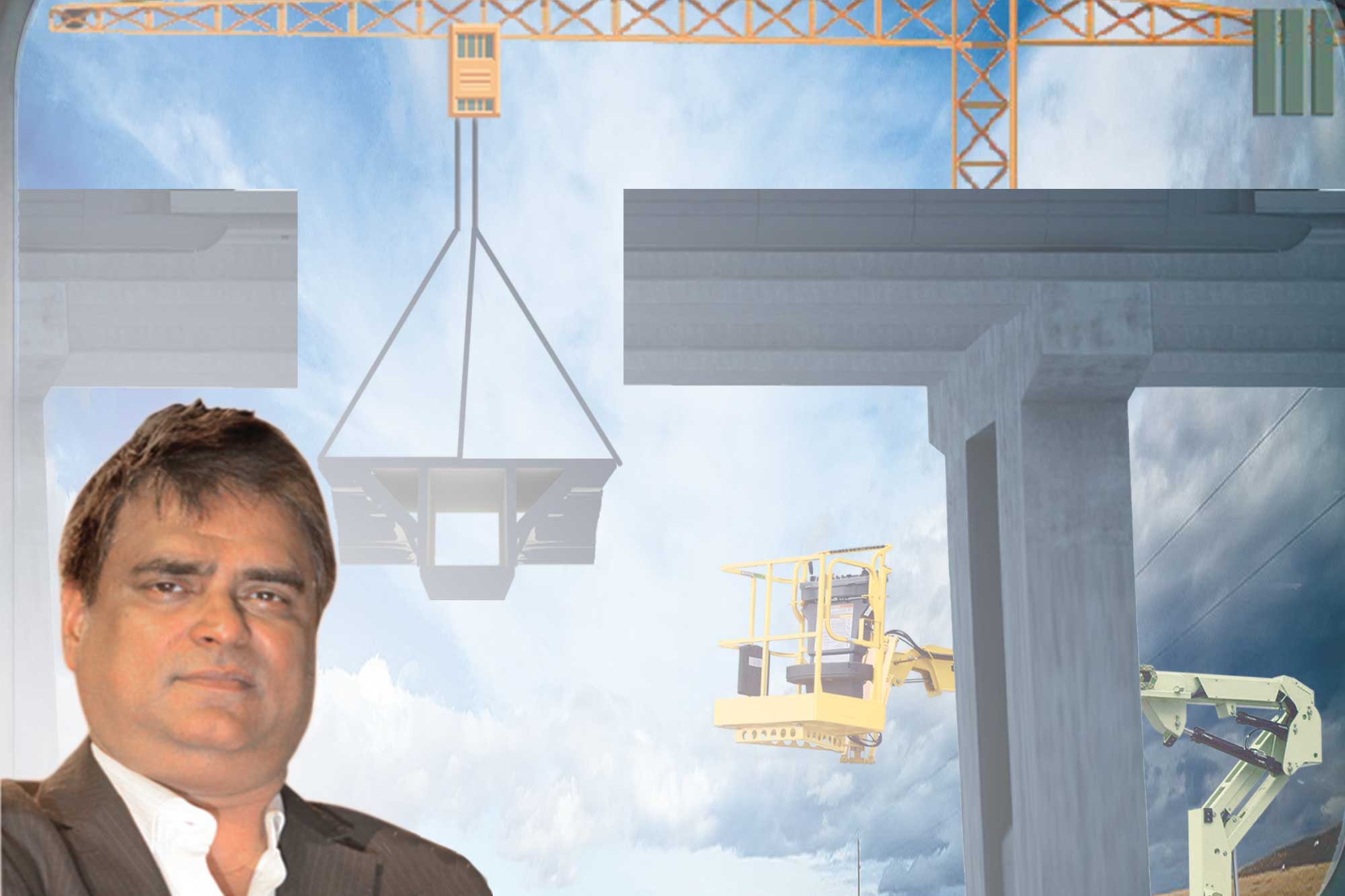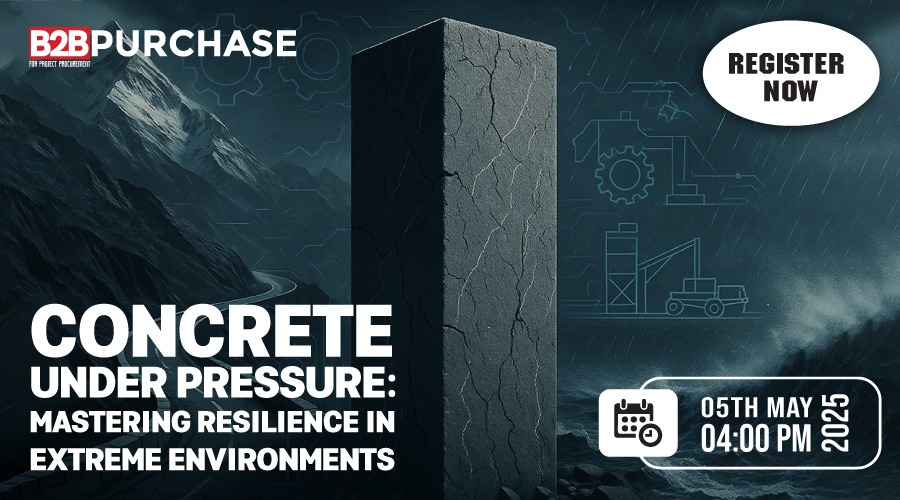“Hybrid Annuity Model is a better proposition”
By Edit Team | July 18, 2016 11:36 am SHARE

Given the quantum required to be invested in the country, it is plainly evident that the country’s private sector will need to engage in significant resource mobilisation.
Bajrang Kumar Choudhary, CEO – Infrastructure Project Development,
Srei Infrastructure Finance Ltd
———————————-
The need for roads and highways expansion programme is enormous and bringing in private capital through PPP framework is inevitable, says Bajrang Kumar Choudhary, CEO – Infrastructure Project Development, Srei Infrastructure Finance Ltd. He adds that reinventing the PPP models through Hybrid Annuity Model has been the step in the right direction to revive investor confidence in the sector.
Srei Infrastructure’s portfolio includes roads, ports, water and economic zones. Are there any specific sectors where green shoots are visible?
We are today one of India’s leading sponsor of public private partnership projects business in the infrastructure sector with presence across roads, ports, economic zones and water management.
As one of India’s leading highways concessionaires, we have execution experience of close to 5,500 lane km of highways with a total capital cost of over Rs. 12,000 crore which are completed or under implementation in consortium with reputed domestic and acclaimed international partners under the PPP framework. These projects are a diversified mix of annuity and toll-based projects and have been awarded by the National Highways Authority of India (NHAI) under the National Highways Development Programme (NHDP), Ministry of Road Transport & Highways and various State Governments.
Currently, we are managing a well-diversified BOT asset portfolio of 7 road projects of close to 2,450 lane kilometers of highways and a total capital cost of about Rs. 8,000 crore which are completed or on the verge of completion. Most of our assets in highway sectors are already operational and the balance would get operational by next year.
In addition, we are also engaged in developing an all-weather port in Maharashtra; three economic zones covering 3,400 acres of land in Tamil Nadu, Maharashtra and West Bengal besides operating and upgrading water treatment plant and water distribution network in an area of 129 sq km in 5 commands zones in the National Capital Region under the Delhi Jal Board in one of the largest water sector PPP projects in the country.
Could you explain more about your portfolio and offerings?
Srei started its journey in 1989 as a leasing and hire purchase company and embarked on a journey of innovation, passion and excellence to emerge as one of India’s leading equipment financier. Having begun in equipment financing and leasing, we progressively entered the allied verticals and today our services in the infrastructure sector include infrastructure project finance, advisory and development, infrastructure equipment finance and rental, alternative investment funds, capital markets, and insurance broking.
Our financier-cum-advisor approach and ability to offer a holistic package of fund and non-fund based services provide our partnering sponsors the advantage of managing the entire project cycle under one umbrella, thereby substantially reducing implementation time and risks. Our deep domain knowledge enables us to provide infrastructure advisory services, financial advisory services, debt and equity syndication, etc. at various stages from bidding to implementation of infrastructure projects.
Leveraging on our expertise in the infrastructure sector and relationship with the customers, we have also partnered with our customers as financial partners for bidding and developing infrastructure projects in road, ports, airports, water and waste management and other urban infrastructure projects.
We are today successful in establishing ourselves as one of the leading developers in the country, and have developed a substantial portfolio in highway sector on the PPP model and have expanded our portfolio further into industrial parks, ports, water and waste management sector.
Government has decided to take up infrastructure projects on the hybrid-annuity mode. How do you think it would revive the sector?
The need for roads and highways expansion programme is enormous and bringing in private capital through PPP framework is inevitable. Besides facilitating inflow of private capital, adopting the public private partnership model ensures better asset quality, better asset utilisation and efficient operation and management of public assets. So reinventing the PPP models through Hybrid Annuity Model has been the step in the right direction to revive investor confidence in the sector.
However, it won’t be fair to keep on experimenting with PPP model and hope for the revival of the sector without sorting out the fundamental problems that hold us back from a seamless evolution of the sector.
We need to understand that unless the core issues on independent dispute redressal mechanism and more importantly the approach of the implementing agencies towards PPP model are not sorted out; we don’t see too much of change in the scenario. We have time and again felt that the true essence of partnership is often missing in the PPP model adopted in the country. The implementing agencies and regulatory bodies are found to be more inclined towards “policing” the private players rather than “partnering” with them in the infrastructure development programme. They need to understand that while building public assets for common good for the country, the private players like us are their partners not clients or customers or service providers.
I would like to add another word of caution here regarding our choice of project implementation mode. As we have seen in the past, we often adopt a populist approach and keep on focusing on a specific project implementation mechanism which leads the trend among the market players at a particular point of time. Due to this practice, we often end up giving importance to one form of project implementation mode over other without proper due diligence.
I would rather say that the current scenario of judiciously mixing up EPC, Hybrid Annuity and BOT (Toll) projects should have been an ideal practice for infrastructure development in India. However, our past experience tells us that instead of adopting a project specific model based on the merit of the project, we have always worked the other way around and our infrastructure planning has always been driven by the prevalent project model which was popular among the market players at particular point of time. Having said that, I would still consider Hybrid Annuity Model is a better proposition as it addresses the issue of revenue risk of the private sector.
What is the most significant achievement in the history of Srei as far as your business is concerned?
We entered the infrastructure business in 1989, well before the infrastructure boom. These were the days when infrastructure financing was believed to be a domain exclusive to the public sector institutions. Although private sector financing to infrastructure was unimaginable, we saw an opportunity and entered into the business of financing infrastructure equipment, offering services like finance, leasing, rental and equipment disposal.
Consequently, we graduated along the infrastructure value chain to establish a strong foothold in project development, the highest rung of the infrastructure value chain.
The journey so far has been quite exciting for us. We have our own moments of glory and phases of despair. We have seen many highs and lows in the sector which has a cascading effect in our business.
We started off by taking up small stakes in the projects owned and managed by mid-size entrepreneurs who were also financed by us. By adopting such model we were not only empowering these entrepreneurs to grow their project development capabilities but also ensured the quality of our portfolio. Subsequently, we expanded our portfolio by taking up project ownership and management ourselves by carefully rebalancing our portfolio and improve our potential returns by minimising the investment portfolio risk.
What are your future plans for Srei? Is Srei Infra open to any M&A in the near future?
We are an infrastructure financing company hence we actively and continuously keep on looking at financing opportunities that come our way within the core infrastructure sector both at primary market as well as secondary market. We already have an appreciable and robust portfolio in roads and highways concession and are gradually expanding our infrastructure activities to industrial parks, ports and shipping, and water and waste water management sector.
Given the quantum required to be invested in the country, it is plainly evident that the country’s private sector will need to engage in significant resource mobilisation. We are among handful Indian companies specialising across the entire range of infrastructure financing. We are therefore positive about the opportunities within the infrastructure space and keep on looking for financing opportunities in the sector.
Besides the opportunities for organic growth by participating in the primary market, there’s also huge potential in the secondary market for inorganic growth. An attractive position for the secondary market would be to create an independent infrastructure platform of yield seeking basket of operational assets which shall be backed by reputed infrastructure focused financial investor. This would not only facilitate unlocking the cash flows from stressed assets but also help in building scale through consolidation of cash generating operational projects to ensure early returns with minimal execution risk.
Cookie Consent
We use cookies to personalize your experience. By continuing to visit this website you agree to our Terms & Conditions, Privacy Policy and Cookie Policy.





































-20240213125207.png)

























